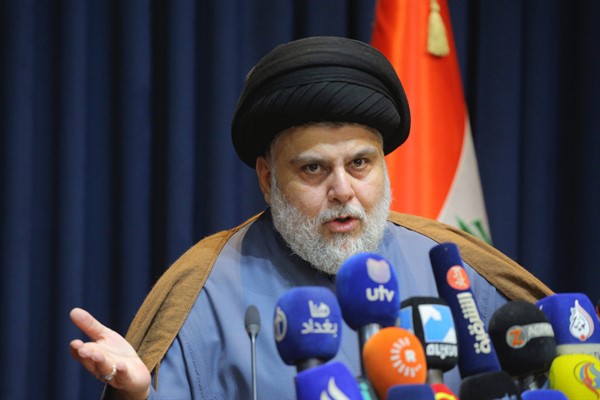Iraq has blown past all the constitutional deadlines to form a government in the aftermath of its October 2021 parliamentary elections, the results of which initially threatened to upend Iraq’s system of sectarian kleptocracy.
Instead, seven months after the election, Iraq’s government formation talks appear to have reached a stalemate, with the most likely outcome now being a government that reflects the exact same power-sharing consensus that has shaped every Iraqi government since 2005, election results notwithstanding.
But the twisting negotiations and gothic political scenarios involved in the government formation talks mask significant long-term shifts underway. The country seems to be moving inexorably away from an identity-based sectarian system that distributes government positions to all of Iraq’s political factions, with few expectations of responsible governance, and toward a majoritarian system where a government that reflects the will of the electorate is tasked with the responsibility of managing the affairs of state.

